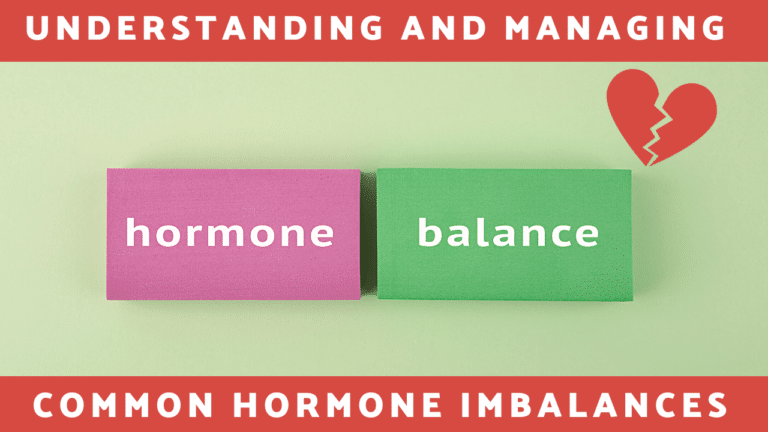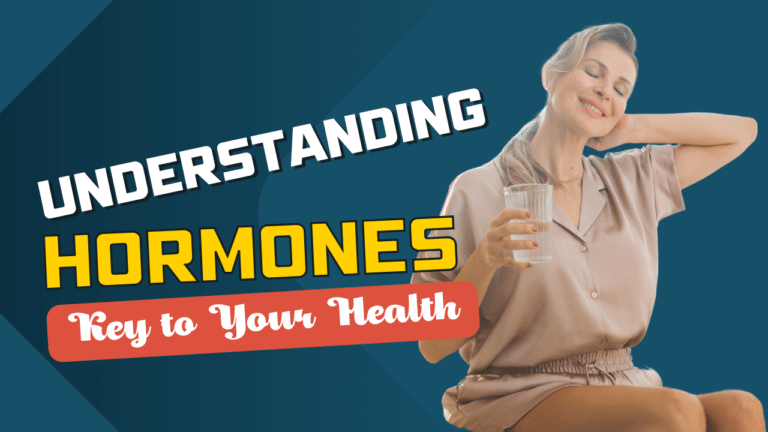The growing interest in natural hormone support has led to an explosion of supplement options promising better hormonal health. However, navigating this landscape requires understanding which supplements actually have scientific backing and how they work within the body’s complex endocrine system. Evidence-based research reveals that specific vitamins, minerals, adaptogens, and phytochemicals can indeed support hormone production, metabolism, and balance when used appropriately. Walk-In Lab’s comprehensive hormone testing services provide the foundation for making informed supplement choices, allowing individuals to monitor their hormonal status and track the effectiveness of their supplementation strategy.
Understanding Hormone-Supporting Supplements
Modern supplement science has identified several categories of nutrients and compounds that can meaningfully impact hormone health. These supplements work through various mechanisms, from supporting the raw materials needed for hormone production to enhancing the body’s ability to metabolize and utilize hormones effectively.
The Science Behind Hormonal Support
Hormone-supporting supplements function by addressing specific physiological processes that influence endocrine health. Some nutrients serve as building blocks for hormone synthesis, while others support the enzymes and metabolic pathways involved in hormone production and breakdown. Additionally, certain compounds help regulate the complex feedback systems that control hormone release and balance throughout the body.
The effectiveness of these supplements often depends on individual hormone profiles, underlying health conditions, and existing nutritional status. This variability underscores the importance of personalized approaches to supplementation, guided by comprehensive hormone testing and professional oversight.
Research has consistently shown that targeted supplementation can address specific hormonal imbalances, particularly when combined with lifestyle modifications and ongoing monitoring. The key lies in understanding which supplements have robust scientific support and how they can be integrated safely and effectively into a comprehensive wellness strategy.
Evidence-Based Supplements for Estrogen Balance
Estrogen metabolism represents one of the most well-researched areas in hormone-supporting supplementation. Several compounds have demonstrated significant benefits for supporting healthy estrogen pathways and addressing symptoms associated with estrogen dominance.
Key Compounds for Estrogen Support
Diindolylmethane (DIM), Calcium D-Glucarate, and Indole-3-Carbinol have emerged as powerful tools for supporting healthy estrogen metabolism. These compounds work by enhancing the liver’s ability to process estrogen and promoting the formation of beneficial estrogen metabolites rather than potentially harmful ones.
DIM, derived from cruciferous vegetables, supports the conversion of estrogen into its less active forms, helping to maintain optimal estrogen balance. Clinical studies suggest that DIM supplementation in doses of 100-300 mg daily can improve estrogen metabolism markers with minimal side effects, making it a well-tolerated option for long-term use.
Calcium D-Glucarate works through a different mechanism, supporting the body’s natural detoxification processes by preventing the reabsorption of estrogen that has already been processed for elimination. This compound helps ensure that excess estrogen leaves the body rather than recirculating and potentially contributing to hormonal imbalances.
Indole-3-Carbinol, another cruciferous vegetable compound, promotes the formation of protective estrogen metabolites while reducing the production of potentially problematic ones. Research indicates that regular supplementation can shift estrogen metabolism in favorable directions, supporting both hormonal balance and long-term health.
Antioxidant Support for Hormone Health
Resveratrol and Green Tea Extract provide additional estrogen support through their potent antioxidant properties and direct effects on estrogen metabolism. These compounds help protect estrogen-sensitive tissues from oxidative damage while supporting healthy hormone processing pathways.
Resveratrol, found in grape skins and red wine, demonstrates selective estrogen receptor modulation, meaning it can provide estrogen-like benefits in some tissues while blocking excessive estrogen activity in others. This unique property makes it particularly valuable for supporting balanced estrogen function throughout different life stages.
Green Tea Extract, rich in catechins like EGCG, supports healthy estrogen metabolism while providing broad antioxidant protection. Regular consumption has been associated with improved estrogen balance markers and reduced symptoms of estrogen-related imbalances.
The Gut-Hormone Connection: Probiotics and Beyond
The relationship between gut health and hormone balance has become increasingly clear through recent research. The gut microbiome plays a crucial role in estrogen metabolism through specialized bacteria collectively known as the estrobolome.
Probiotics for Hormonal Health
Probiotics support the gut microbiome’s ability to properly metabolize estrogen, leading to improved overall hormone balance. Specific strains of beneficial bacteria help ensure that estrogen is broken down and eliminated effectively rather than being reabsorbed and potentially contributing to hormonal imbalances.
The estrobolome consists of bacteria that produce enzymes capable of metabolizing estrogen compounds. When this bacterial population is healthy and diverse, estrogen metabolism proceeds efficiently. However, when gut health is compromised, estrogen metabolism can become impaired, potentially leading to estrogen dominance symptoms.
High-quality probiotic supplementation, particularly with strains that support estrogen metabolism, can help restore balance to the gut microbiome and improve hormonal health. The benefits extend beyond estrogen metabolism to include improved immune function, better nutrient absorption, and enhanced mood regulation through the gut-brain axis.
Research demonstrates that combining probiotics with other hormone-supporting nutrients creates synergistic effects that exceed the benefits of individual supplements alone. This approach reflects the interconnected nature of hormonal health and the importance of comprehensive support strategies.
Essential Vitamins and Minerals for Hormone Health
Several vitamins and minerals play foundational roles in hormone production and regulation. Understanding these key nutrients helps identify potential deficiencies that could be impacting hormonal health and guides targeted supplementation strategies.
Vitamin D: The Hormone-Like Vitamin
Vitamin D functions more like a hormone than a traditional vitamin, with receptors throughout the body that influence numerous endocrine processes. Research particularly highlights its importance for reproductive health, with studies showing that adequate Vitamin D levels support regular ovulation, healthy menstrual cycles, and improved fertility outcomes.
For women with polycystic ovary syndrome (PCOS), Vitamin D supplementation has demonstrated remarkable benefits. Clinical trials reveal that consistent supplementation can reduce elevated testosterone levels, improve menstrual regularity, and enhance insulin sensitivity. These effects make Vitamin D supplementation a cornerstone of natural PCOS management.
The hormone-like properties of Vitamin D extend to its role in regulating inflammation throughout the body. Chronic inflammation can disrupt hormone production and signaling, making Vitamin D’s anti-inflammatory effects particularly valuable for overall endocrine health.
B-Vitamins and Hormone Synthesis
B-vitamins serve as essential cofactors in numerous enzymatic reactions involved in hormone production and metabolism. Deficiencies in key B-vitamins can significantly impact the body’s ability to produce adequate amounts of hormones or to metabolize them effectively.
Vitamin B6 plays a particularly important role in supporting progesterone production and helping to balance estrogen-to-progesterone ratios. This vitamin also supports the liver’s ability to process hormones and can help alleviate symptoms associated with premenstrual syndrome and hormonal mood swings.
Folate and B12 work together to support healthy methylation processes, which are crucial for hormone metabolism and detoxification. These vitamins help ensure that hormones are properly processed and eliminated from the body rather than accumulating and potentially causing imbalances.
Magnesium: The Relaxation Mineral
Magnesium supports numerous bodily functions including hormone regulation and can significantly alleviate symptoms related to hormonal imbalances. This essential mineral plays roles in over 300 enzymatic reactions, many of which directly impact hormone production and metabolism.
For women experiencing hormonal fluctuations, magnesium supplementation can help reduce symptoms such as mood swings, sleep disturbances, and muscle tension. The mineral’s calming properties support the nervous system and help regulate the body’s stress response, indirectly supporting healthier hormone patterns.
Magnesium also supports healthy blood sugar regulation, which is crucial for maintaining balanced insulin levels. Since insulin affects numerous other hormones, supporting healthy blood sugar through magnesium supplementation provides broad benefits for overall hormonal health.
Specialized Supplements for Specific Conditions
Certain hormonal conditions benefit from targeted supplementation approaches based on their unique underlying mechanisms and nutrient needs. Understanding these specific applications helps guide more precise supplement selection.
PCOS-Targeted Supplements
Myo-inositol has emerged as a particularly powerful supplement for PCOS management. This naturally occurring compound helps improve insulin sensitivity, which is often impaired in women with PCOS. By supporting healthy insulin function, myo-inositol helps reduce elevated androgen levels and can improve menstrual regularity and ovulation.
Vitamin E provides antioxidant protection while supporting healthy glucose metabolism. For women with PCOS, this dual action helps address both the inflammatory aspects of the condition and the metabolic dysfunction that often accompanies it.
Coenzyme Q10 supports cellular energy production and provides additional antioxidant protection. Research suggests that CoQ10 supplementation can improve various PCOS-related markers, including insulin sensitivity and inflammatory markers.
Thyroid Support Nutrients
Thyroid health requires specific nutrients that support hormone production and conversion. Iodine, selenium, and tyrosine represent key nutrients for optimal thyroid function, though supplementation requires careful consideration of individual needs and existing thyroid status.
Selenium plays a crucial role in converting inactive T4 thyroid hormone into the active T3 form. This conversion is essential for proper thyroid hormone function throughout the body. Selenium deficiency can significantly impair thyroid hormone metabolism, making supplementation beneficial for those with low selenium status.
Tyrosine serves as a building block for thyroid hormones and supports the production of adequate hormone amounts. However, supplementation should be guided by testing and professional oversight, as excessive amounts can potentially worsen certain thyroid conditions.
Adaptogens for Stress and Hormone Balance
Adaptogenic herbs offer unique benefits for hormone health by helping the body manage stress more effectively and supporting the complex interactions between stress hormones and other endocrine functions.
Ashwagandha and Cortisol Regulation
Ashwagandha demonstrates significant ability to modulate cortisol levels and support stress-related hormone balance. This powerful adaptogen helps normalize cortisol patterns, which is crucial since elevated or dysregulated cortisol can interfere with reproductive hormones, thyroid function, and metabolic health.
Clinical studies show that regular ashwagandha supplementation can reduce cortisol levels by up to 30% while improving stress resilience and overall well-being. These effects translate into better hormone balance throughout the endocrine system, as cortisol regulation affects numerous other hormonal pathways.
The benefits of ashwagandha extend beyond stress management to include support for thyroid function, reproductive health, and energy levels. This broad spectrum of effects makes it a valuable addition to comprehensive hormone support protocols.
Rhodiola and Stress Adaptation
Rhodiola rosea offers complementary benefits to ashwagandha, supporting the body’s ability to adapt to various stressors while maintaining healthy energy levels and mental clarity. This adaptogen helps prevent stress-induced hormonal disruptions by supporting more resilient stress response patterns.
Research indicates that rhodiola can help maintain healthy cortisol rhythms during periods of increased stress, preventing the hormonal cascades that often lead to broader endocrine imbalances. The herb also supports mental performance and mood regulation, addressing some of the cognitive and emotional effects of hormonal fluctuations.
The Importance of Omega-3 Fatty Acids
Omega-3 fatty acids play crucial roles in reducing inflammation and modulating hormone levels throughout the body. These essential fats serve as building blocks for hormone production while providing anti-inflammatory support that protects hormone-producing tissues.
Anti-Inflammatory Effects on Hormone Health
Chronic inflammation can significantly disrupt hormone production and signaling throughout the body. Omega-3 fatty acids help combat this inflammation, creating a more favorable environment for healthy hormone function. This is particularly important for conditions like PCOS, endometriosis, and other inflammatory hormonal disorders.
The anti-inflammatory effects of omega-3s extend to supporting healthy insulin sensitivity, which is crucial for maintaining balanced reproductive and metabolic hormones. By improving insulin function, omega-3 supplementation can help address some of the underlying metabolic dysfunction that contributes to hormonal imbalances.
EPA and DHA, the two primary omega-3 fatty acids found in fish oil, provide the most significant benefits for hormone health. These fatty acids support cell membrane health, which is essential for proper hormone receptor function throughout the body.
Synergistic Supplement Combinations
Research increasingly demonstrates that combining specific supplements can create synergistic effects that exceed the benefits of individual nutrients alone. Understanding these combinations helps optimize supplementation strategies for better hormonal health outcomes.
Proven Combination Strategies
Clinical studies emphasize the importance of supplement combinations, such as probiotics with Vitamin D or Omega-3s, for enhanced benefits on hormone health and inflammation. These combinations work by addressing multiple aspects of hormonal health simultaneously, creating more comprehensive support.
The combination of probiotics with Vitamin D supports both gut health and immune function while addressing potential deficiencies that could impact hormone metabolism. This pairing is particularly beneficial for individuals with digestive issues that may be affecting nutrient absorption and hormone balance.
Omega-3 fatty acids combined with magnesium provide powerful anti-inflammatory effects while supporting nervous system health and stress management. This combination addresses both the inflammatory and stress-related aspects of hormonal imbalances.
Testing-Guided Supplement Selection
The most effective supplement strategies are based on individual hormone profiles rather than generic recommendations. This personalized approach ensures that supplementation addresses specific imbalances and needs rather than taking a one-size-fits-all approach.
The Role of Comprehensive Hormone Testing
Walk-In Lab’s hormone testing services provide detailed insights into individual hormone levels, ratios, and patterns that guide precise supplement selection. Testing reveals specific areas of imbalance that can be targeted with appropriate supplementation while identifying areas where intervention may not be necessary.
Regular monitoring through follow-up testing allows for adjustments to supplement protocols based on response and changing needs. This iterative approach ensures that supplementation continues to provide benefits while avoiding unnecessary or potentially harmful interventions.
Hormone testing also helps identify when lifestyle factors may be more important than supplementation, guiding a more comprehensive approach to hormonal health that addresses root causes rather than just symptoms.
Safety Considerations and Quality Standards
Supplement safety requires attention to quality, dosing, timing, and potential interactions with other medications or supplements. Understanding these factors helps ensure that supplementation provides benefits while minimizing risks.
Quality and Standardization
The supplement industry varies widely in terms of quality control and standardization. Choosing supplements from reputable manufacturers who use third-party testing and follow good manufacturing practices helps ensure that products contain the stated amounts of active ingredients without harmful contaminants.
Standardized extracts provide more consistent dosing and effects compared to non-standardized products. This consistency is particularly important for hormone-supporting supplements, where precise dosing can significantly impact effectiveness and safety.
Certificate of analysis documentation from manufacturers provides transparency about product purity and potency, allowing consumers to make informed choices about supplement quality.
Monitoring and Professional Guidance
While many hormone-supporting supplements are generally safe for most people, monitoring through regular testing and professional guidance helps optimize benefits while preventing potential complications. This is particularly important for individuals with existing health conditions or those taking medications that could interact with supplements.
Starting with conservative doses and gradually increasing as needed allows for better tolerance assessment and helps identify the minimum effective dose for each individual. This approach reduces the risk of side effects while maximizing benefits.
Professional oversight becomes especially important when combining multiple supplements or when addressing complex hormonal conditions that may require coordinated treatment approaches.
Frequently Asked Questions
Which supplements help balance estrogen levels?
DIM, Calcium D-Glucarate, Indole-3-Carbinol, Resveratrol, and Green Tea Extract have demonstrated strong evidence for supporting healthy estrogen metabolism. These compounds work through different mechanisms to promote beneficial estrogen metabolites while supporting the body’s natural detoxification processes. The choice of specific supplements depends on individual hormone patterns and symptoms, making testing valuable for guiding selection.
Can probiotics support hormone health?
Yes, probiotics play a crucial role in hormone health by supporting the gut microbiome’s ability to metabolize hormones, particularly estrogen. The specialized bacteria known as the estrobolome help ensure that estrogen is properly broken down and eliminated rather than reabsorbed into circulation. Quality probiotic supplementation can improve this process while providing additional benefits for immune function and overall digestive health.
What role do vitamins D and E play in hormone support?
Vitamin D functions like a hormone itself, regulating ovulation, inflammation, and reproductive health, while Vitamin E improves glucose metabolism and provides antioxidant protection. Both vitamins are particularly important for women with PCOS, where they help improve insulin sensitivity, reduce inflammatory markers, and support regular menstrual cycles. These vitamins work synergistically with other nutrients to provide comprehensive hormonal support.
Are adaptogenic herbs effective for hormone-related stress management?
Adaptogenic herbs like ashwagandha and rhodiola demonstrate significant effectiveness in supporting cortisol regulation and stress resilience. These herbs help normalize stress hormone patterns, which indirectly benefits other hormones throughout the endocrine system. Clinical studies show measurable improvements in cortisol levels and stress-related symptoms with consistent use, making adaptogens valuable tools for comprehensive hormone support.
How important is personalized testing when using supplements?
Personalized hormone testing is crucial for optimizing supplement selection and monitoring effectiveness. Testing reveals individual hormone patterns, deficiencies, and imbalances that guide specific supplement choices rather than generic recommendations. Regular follow-up testing allows for adjustments based on response and changing needs, ensuring that supplementation continues to provide benefits while avoiding unnecessary interventions.
Conclusion
The landscape of hormone-supporting supplements offers promising opportunities for individuals seeking natural approaches to endocrine health. However, the key to success lies in understanding which supplements have robust scientific support and how they can be integrated into personalized wellness strategies based on individual hormone profiles and needs.
Evidence-based supplements such as DIM, probiotics, Vitamin D, magnesium, and adaptogens provide measurable benefits for hormone balance when used appropriately. The most effective approaches often involve combining multiple supplements to address different aspects of hormonal health simultaneously, creating synergistic effects that exceed the benefits of individual nutrients alone.
Quality, dosing, and timing all play crucial roles in supplement effectiveness and safety. Choosing high-quality products from reputable manufacturers and following evidence-based dosing guidelines helps ensure optimal results while minimizing potential risks. Professional guidance and regular monitoring through comprehensive hormone testing further enhance the safety and effectiveness of supplementation strategies.
Walk-In Lab’s convenient and comprehensive hormone testing services provide the foundation for making informed supplement decisions and tracking progress over time. This testing-guided approach transforms supplementation from guesswork into a precise, personalized strategy for better hormonal health.
Ultimately, hormone-supporting supplements work best as part of a comprehensive approach that includes attention to diet, exercise, stress management, and sleep quality. When integrated thoughtfully with lifestyle modifications and ongoing monitoring, evidence-based supplementation can provide significant support for hormonal balance and overall wellness, empowering individuals to take control of their endocrine health naturally and effectively.
This content is for informational purposes only and is not a substitute for professional medical advice. Always consult your healthcare provider before starting any new supplement regimen, especially if you have existing health conditions or take medications.





